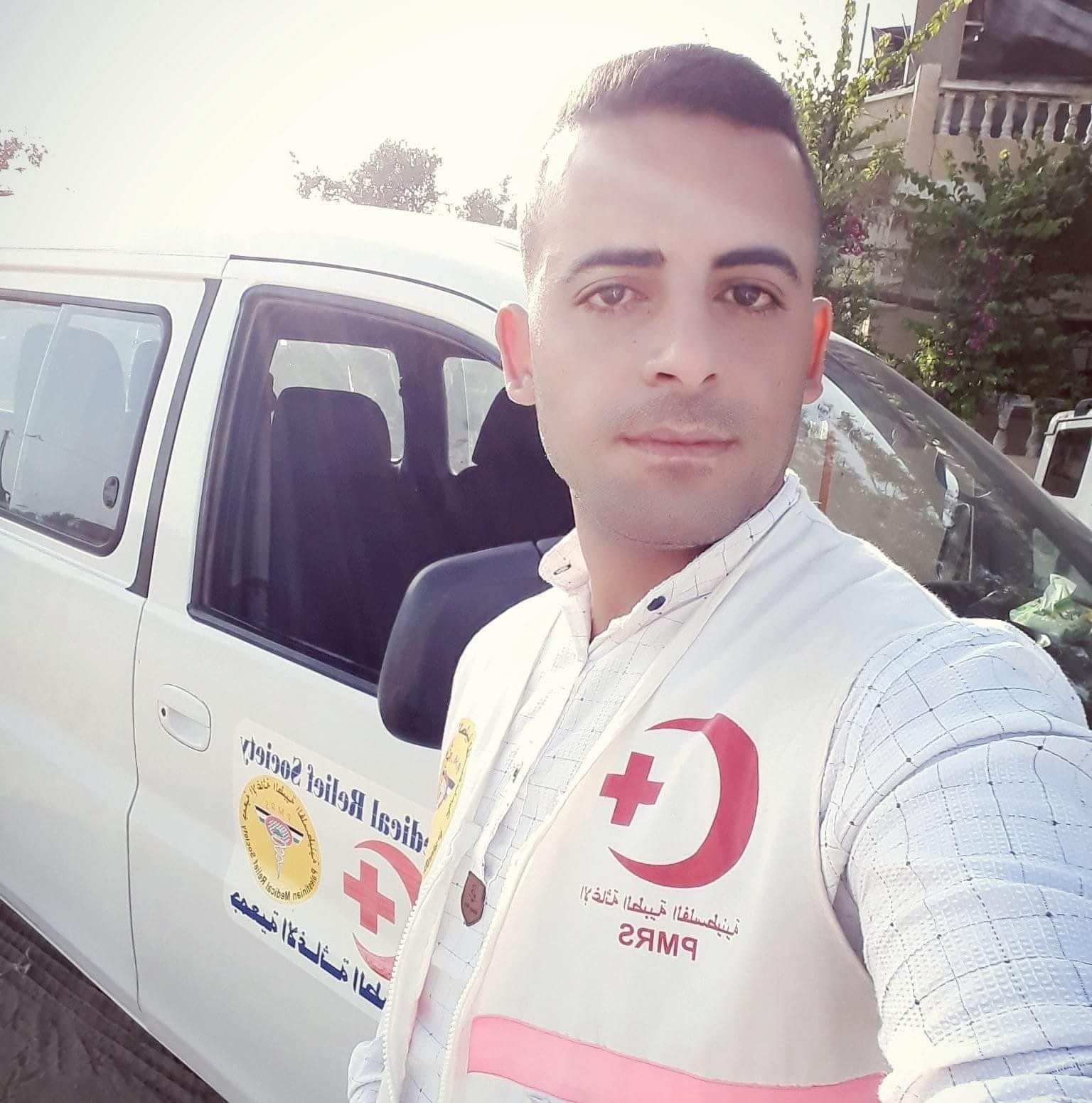 Rami is a 29-year-old volunteer first responder and mental health support worker. He is a refugee who grew up in Khan Yunis in the south of the Gaza Strip. Rami joined the Palestinian Medical Relief Society (PMRS) in March 2018 to assist as a first responder during demonstrations that have been taking place in Gaza for the right to return of Palestinian refugees and against the on-going blockade of the Gaza Strip.
Rami is a 29-year-old volunteer first responder and mental health support worker. He is a refugee who grew up in Khan Yunis in the south of the Gaza Strip. Rami joined the Palestinian Medical Relief Society (PMRS) in March 2018 to assist as a first responder during demonstrations that have been taking place in Gaza for the right to return of Palestinian refugees and against the on-going blockade of the Gaza Strip.
“We’re affected by too many wars and conflicts, so it’s critical to have people trained to provide immediate care for the injured.”
Rami has been injured three times during his volunteering as a first responder since the start of demonstrations on 30 March 2018. On one of these occasions, he was shot with live ammunition during an incident where his colleague Razan was killed. They were working together as part of a team of five.
“When we got close to some of those injured near the fence, the soldiers started firing at us with live bullets and gas. We retreated away from the fence and Rasha and Razan [two members of the team] fainted at that time from gas inhalation. Later, we stood away from the fence and Rasha suddenly noticed the soldiers had their weapons pointed at us. I moved just in time – I was shot in my left thigh and had a shrapnel wound in my right thigh and right hand, but it could have been a lot worse. Razan was shot in the chest. I didn’t see her after that because I was being treated, but I was told that she died half an hour later.
“We know the risks we face, but we also believe in the importance of our work and the need to provide good care for those who are injured. Still, nothing can prepare you for the psychological pain of losing a colleague and a friend like Razan. She was in such high spirits when she arrived to work on the day she died. She had a new phone and she wanted us to take selfies to put on social media.”
Rami continues to volunteer and provide care to those injured during the demonstrations every Friday, while working as a mental health support worker for PMRS in the week.
“We have all suffered but our work is bigger than our wounds. I went straight back the Friday after I was injured. I wasn’t able to work, but I wanted to show solidarity with my colleagues and to be with them after we lost Razan. We will keep coming to help as long as there are people who need us.”




